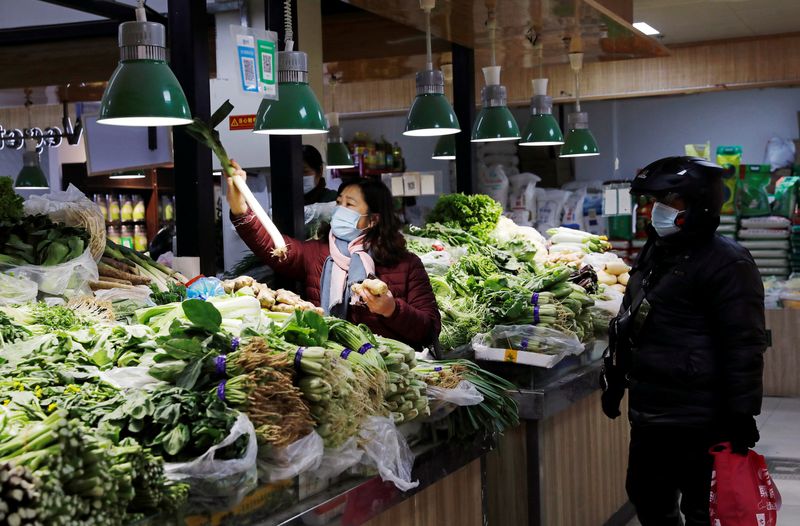
© Reuters. FILE PHOTO: People wearing face masks shop at a market, following new cases of the coronavirus disease (COVID-19) in the country, in Beijing, China January 11, 2021. REUTERS/Tingshu Wang
BEIJING (Reuters) – China’s consumer inflation in March hit the slowest pace since September 2021, driven by falling food prices, official data showed on Tuesday, suggesting demand weakness persists amid an uneven economic recovery.
Producer deflation extended into a sixth month.
The consumer price index (CPI) for the month rose 0.7% year-on-year, compared with the 1.0% annual gain seen in February, said the National Bureau of Statistics (NBS). The result missed the median estimate of a 1.0% rise in a Reuters poll.
The CPI fell 0.3% from a month earlier after a 0.5% fall in February, slower than a forecast of no change.
The government has set a target for average consumer prices in 2023 to be about 3%. Prices rose 2% on year in 2022.
The producer price index (PPI) fell 2.5% from a year earlier, compared with a 1.4% drop in February. It was in line with a forecast tipped in a Reuters poll.
The PPI remained flat from a month earlier, in line with the previous month’s rate.
Recent data showed China’s economic rebound remained uneven in March with the services sector seeing strong recovery but the sprawling manufacturing sector losing momentum amid still-weak export orders.





